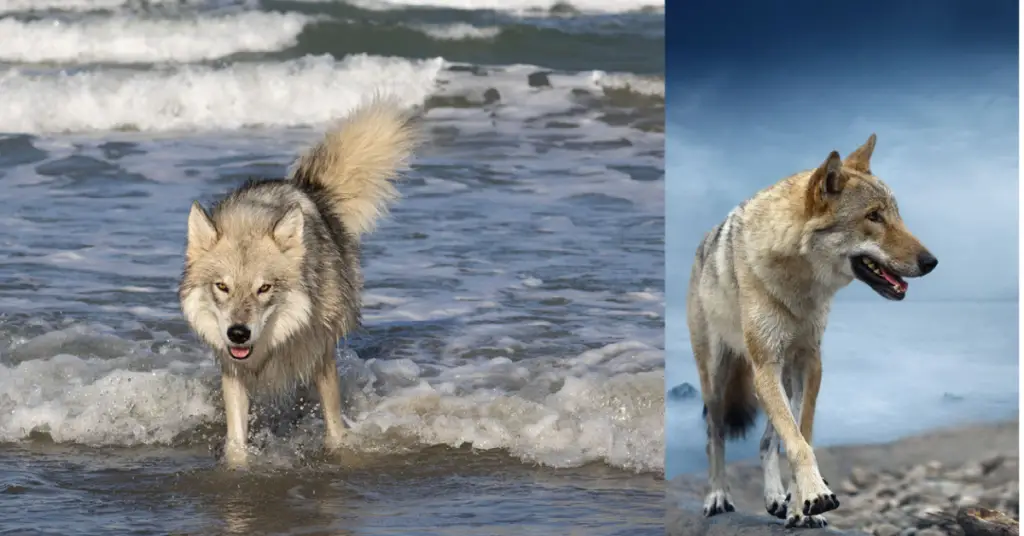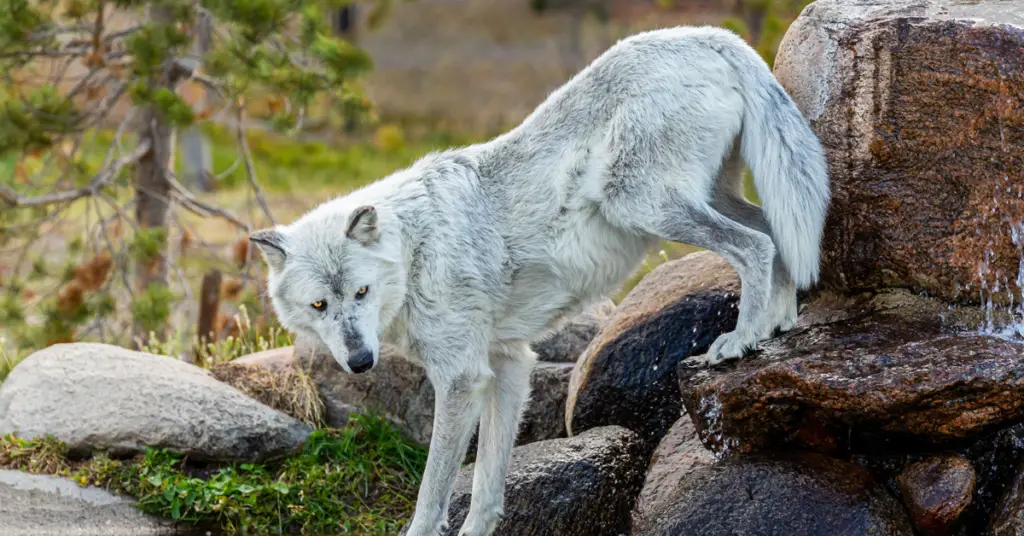When researchers first captured video of a wolf engaging in fishing on camera, they initially believed it to be a solitary instance of seizing an opportunistic meal. This occurrence took place in 2017 when biologists were overseeing a series of trail cameras strategically positioned across Voyageurs National Park in Minnesota, aimed at conducting a wolf population census. While wolves have a diverse diet, fishing is not a well-known behavior attributed to them.
In the subsequent years of observation, the research team maintained vigilance over the activities of gray wolves (Canis lupus), specifically searching for instances of comparable conduct. Without fail, during each summer, their camera footage documented wolves fishing. Remarkably, one of the researchers even had the firsthand experience of witnessing a wolf catching a fish directly in front them.
“It’s the pinnacle of what you’d want to see out in the field,” said Dani Freund, a master’s student at the University of Minnesota. “It shows that wolf hunting behavior is more flexible than we originally thought.”
Recent research has unveiled an increasing body of evidence indicating that wolves’ predatory habits extend beyond just targeting ungulates such as moose and deer. Within Katmai National Park, investigations have indicated that wolves also engage in predation upon sea otters.
A study recently published in Royal Society: Open Science, led by Freund and her collaborators, elaborated on how this newly documented behavior augments our understanding of gray wolf conduct and freshwater ecosystems. Through the utilization of video footage, they substantiated that ten distinct wolves—comprising a solitary wolf and nine others from five separate packs—participated in this innovative behavior.
Primarily, these wolves were observed catching white suckers (Catostomus commersonii), a benthic species that can attain lengths of up to two feet but is frequently disregarded by anglers as a negligible catch.
However, the wolves displayed no apparent aversion. They frequently positioned themselves beneath beaver dams, where the water’s shallowness could potentially facilitate a more straightforward fish capture.
“Beavers seem to be indirectly facilitating this fishing behavior,” Freund said. In Voyageurs, wolves are known to prey on beavers. “[This] increases the depth of our understanding of the wolf-beaver relationship.”
White suckers commonly engage in spawning activities during the nighttime hours—researchers observed wolves directing their attention towards these fish during this period. In fact, Freund noted that the wolves appear to be attuned to fish behavior both in terms of hourly patterns and across seasons, strategically taking advantage of times when fish populations are plentiful and their capture is relatively effortless.
The wolves partaking in fishing activities represented a broad spectrum of demographics, encompassing breeding females, yearlings, and fully grown males.

B.C. and Alaskan Coastal Wolves have sometimes been called “Sea Wolves” because of their proclivity for fishing.
“When wolves come across favorable conditions for fishing, they may be able to fish regardless of their past experience,” Freund said.
According to Freund, fish could serve as a source of sustenance for wolves during periods when alternative prey like deer is inaccessible. This observation contributes to the mounting body of proof that wolves exhibit a greater dietary adaptability than previously thought. In a recent revelation, biologists uncovered that wolves within Voyageurs National Park also consume berries alongside their prey choices.
These Minnesotan wolves are not unique: the salmon-eating coastal wolves of Alaska and British Columbia have even been called “marine mammals” or “sea wolves” by some researchers.




